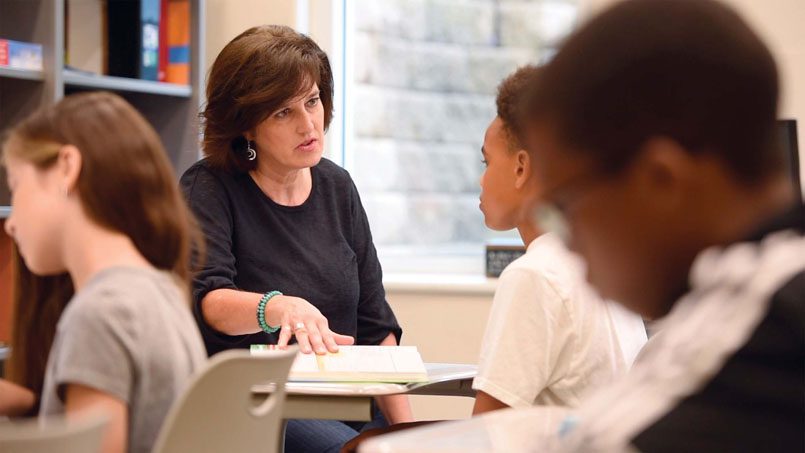31 Jul 2021 Feeling their way through
By Stefanie Brazile
The pandemic has taken a toll on people’s sense of safety and security and on their mental wellbeing. Even though it’s common to hear the phrase “kids are resilient,” mental healthcare professionals are speaking out about the effects that the COVID-19 virus has had on children and youth.
At first glance, one might think that kids were glad to stay home and learn, but licensed clinical social worker Amanda G. Owens offers a different perspective.
“Many kids are resilient, but they crave structure,” said Owens, a program coordinator for several school-based programs in the 501. “With the quarantine, the routines that kids were accustomed to — those that made them feel safe, such as getting up at a certain time, getting ready for school, as well as their set times for school subjects, recess and lunch — were gone.

“While the change was fun at first for some, for many kids, school is their safe place. It’s where they feel loved. It’s where they know what to expect. With that gone came increased anxiety, fear and depression.” Besides a predictable routine, students benefit from the traditional aspects of school like personal interactions with teachers, hands-on learning, and social interaction with peers. These benefits could not be achieved through virtual learning, according to Owens.
“We saw many kids who no longer had any form of socialization,” Owens said. “They did not leave their homes for months. While some older kids had online interaction with peers, not all had that luxury, and most of the younger children did not have any interaction with anyone outside of their home.”
For many children, this halted social development has made returning to the classroom stressful. Owens said that parents and guardians can be proactive and supportive to students by being present and showing love and support.
“Open communication is very important in families,” she said. “It allows children to have a voice for their thoughts, questions and concerns. It allows the parents to provide a loving and supportive environment for their child’s voice to be heard, the opportunity for parents to gain their child’s insight to the virus, and to correct any misinformation the child may have gotten from peers or other sources.”
She encourages adults to ask the student how they are feeling and to realize that sometimes they don’t know what they’re feeling. “They just know they feel ‘different’ than normal.”
Owens anticipates that students will have a mixture of emotions as they head back to school. They may be sad to leave Mom or Dad during the day but excited to see peers and favorite teachers. At the same time, they may feel anxious about possibly being exposed to the virus. While these emotions are normal, if a child has physical complaints, is vomiting or is crying inconsolably, she encourages adults to reach out to the school counselor or a mental health provider.
Other behaviors that indicate the child is overwhelmed can include withdrawal, anger, aggression, lack of interest in their usual activities, change in appetite, change in sleep patterns, and any sort of dangerous or destructive behavior.
For teens, one could see self-destructive behavior such as drug or alcohol use, reckless driving, and toxic relationships. “Watch for any change in their usual behavior or demeanor,” she said. “Do not be afraid to talk to your children or teens about the changes you’re noticing and be supportive of wanting to hear them if they want to talk.”
If a parent feels that a child needs more support than they can give, they can reach out to the child’s teacher, school counselor, church, or primary care physician. These professionals can point the parent to resources. In many communities, there are free and low-cost resources available. Learn more about psychiatric, behavioral, emotional and spiritual health in Arkansas at methodistfamily.org.








